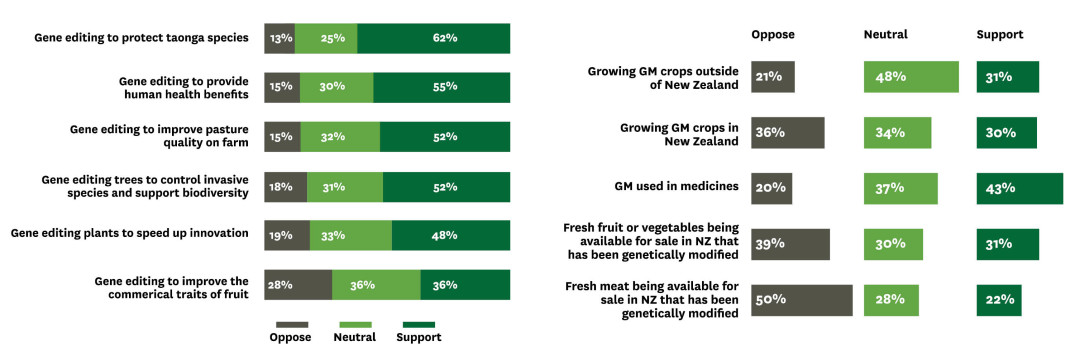One of the biggest changes on the horizon for New Zealand food production is gene editing using CRISPR or advanced breeding.
CRISPR: A technology that can be used to edit genes by finding and altering a specific bit of DNA inside a cell.
Advanced breeding: Breeders identify and tag desirable characteristics within a plant genome and use this information to cross-breed and create better performing crops.
It is clear there are conflicting views and there needs to be a conversation and more education in this space. In recent years, there has been an increase in genetically modified (GM) crops and the products derived from them. This has been accompanied by some concerns over safety and vocal opposition by some groups. Brands and growers are therefore going to be careful in approaching gene editing conversations. New Zealand research firm, Research First, conducted a national survey which provided insights to indicate what the consumer wants from its food producers. The results highlighted the mixed views with a third of New Zealanders saying they would support GM crops being grown in New Zealand. Public support for gene editing in New Zealand food production came in at 32% for, 47% neutral, and 21% against.
Reasons FOR support focused on:
- Improved yields as demand increases.
- Providing resilience to climate change, pests and disease (and lower needs for pesticides, fertilisers and water use).
- Ability to produce nutritionally richer food.
- Potential to reduce cost to consumer and increase shelf life.
- Belief in the science behind the process.
- Just a lack of reasons not to.
Reasons AGAINST focused on:
- It not being natural.
- It not being necessary.
- Lack of information on the long-term effects (both to human health and to the planet).
- It being a mis-match with NZ's 'clean, green' image.
